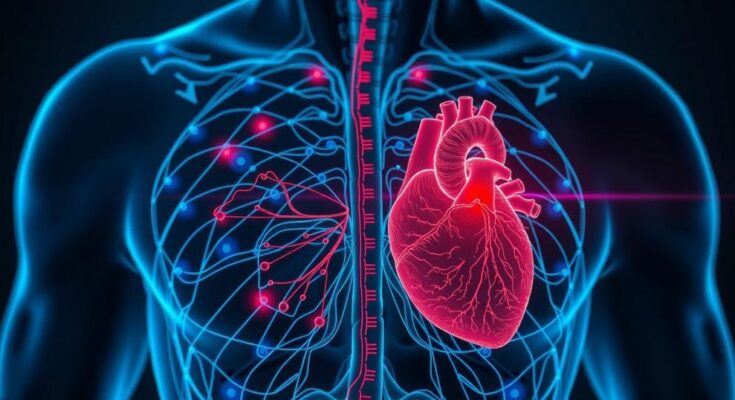Johns Hopkins University has developed an innovative blood test that can detect heart attacks in just minutes, significantly faster than traditional methods. This cost-effective and portable tool employs biophotonics to identify cardiac biomarkers quickly, making it particularly beneficial for first responders. Its potential applications may extend to diagnosing other critical diseases like cancers and infections.
A groundbreaking blood test developed by researchers at Johns Hopkins University promises to detect heart attacks within minutes, a stark contrast to traditional methods that can take hours. This innovative diagnostic tool is affordable, accurate, and can be utilized in non-clinical settings, making it invaluable for first responders who require timely information. Published in Advanced Science, this technology stands to revolutionize emergency medical responses and save countless lives. Current heart attack detection methods, such as ECGs and blood tests, are often cumbersome and lengthy, requiring multiple steps for confirmation. Dr. Vijay Natarajan from Bharati Hospital emphasizes that speed and precision in diagnosis are critical. “A major cause of heart attack-related deaths is delayed diagnosis,” he remarks, noting challenges in accessibility and affordability in countries like India. The test employs biophotonics, specifically using laser light to identify blood biomarkers linked to heart attacks. It delivers results in a swift five to seven minutes. The mechanism involves Raman spectroscopy, assessing how light interacts with chemical bonds within molecules. Lead researcher Peng Zheng explains the tool captures vital proteins indicative of cardiac events with unparalleled speed. Using a specialized chip, a minuscule blood sample is placed to reveal specific molecular markers. This sensitivity allows it to detect heart attack signals that traditional tests might overlook or delay recognizing. The potential for this technology extends beyond cardiac care; adaptations for diagnosing cancers and infectious diseases are on the horizon, showcasing its versatility and multiplex capabilities for multiple biomarkers.
The ability to rapidly diagnose heart attacks is crucial, as delayed identification often leads to devastating outcomes. The traditional diagnostic landscape for heart attacks is characterized by lengthy processes that can hinder timely medical interventions. Innovations in medical technology, like this new blood test, aim to address these critical gaps in emergency response, particularly in settings where rapid decisions make a substantial difference.
In conclusion, the new blood test from Johns Hopkins University represents a significant advancement in emergency cardiac care, capable of identifying heart attacks swiftly and accurately. Its unique use of biophotonics and pinpoint detection offers hope for improved outcomes, saving lives by enabling first responders to act quickly. Beyond its heart attack capabilities, the test has the potential to adapt for various other medical diagnoses, paving the way for future innovations in healthcare.
Original Source: indianexpress.com



